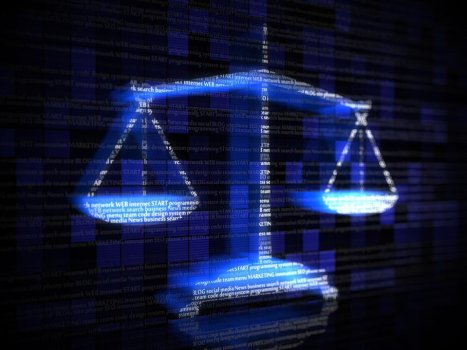“Code is law” has become a catchphrase in this age where transactions of all sorts are being shifted onto blockchain platforms. Some use the term to suggest that code should replace law in many respects when it comes to these transactions. Others use it to defend against claims that they have acted wrongly and argue that they are simply using technically complex rules to outsmart others on a digital platform and obtain outcomes (like wealth) that others did not believe could or would occur.
Drawing from his 1999 book Code and Other Laws of Cyberspace, Lawrence Lessig is credited with coining the phrase “code is law,” which is the title for his 2000 Harvard Magazine article. In these writings, Lessig explores issues with the then-nascent internet, and posits that the absence of government regulation does not mean there should be the absence of any regulation. Instead, Lessig asserts that code written by software engineers will provide the rules of interaction and embody value judgments that will set rules for how broader society interacts in cyberspace.
Lessig’s writing came twenty years ago when less was known about how code and regulation would intersect. However, I see his writings as prescient. Lessig’s main argument is that we must collectively understand how code regulates the internet, as it is the basis of our interaction with the digital world. Since code does not employ discretion the way humans do, an automated governance structure will change the nature of law online. He notes that code can either “embed, or displace, values from our constitutional tradition,” and that we can ensure that values are not displaced by understanding the regulator of the internet: code. His article makes three main points:
Continue reading: https://www.forbes.com/sites/forbesbusinesscouncil/2022/05/17/code-is-law-during-the-age-of-blockchain/?sh=1841ea7d2adb
Drawing from his 1999 book Code and Other Laws of Cyberspace, Lawrence Lessig is credited with coining the phrase “code is law,” which is the title for his 2000 Harvard Magazine article. In these writings, Lessig explores issues with the then-nascent internet, and posits that the absence of government regulation does not mean there should be the absence of any regulation. Instead, Lessig asserts that code written by software engineers will provide the rules of interaction and embody value judgments that will set rules for how broader society interacts in cyberspace.
Lessig’s writing came twenty years ago when less was known about how code and regulation would intersect. However, I see his writings as prescient. Lessig’s main argument is that we must collectively understand how code regulates the internet, as it is the basis of our interaction with the digital world. Since code does not employ discretion the way humans do, an automated governance structure will change the nature of law online. He notes that code can either “embed, or displace, values from our constitutional tradition,” and that we can ensure that values are not displaced by understanding the regulator of the internet: code. His article makes three main points:
Continue reading: https://www.forbes.com/sites/forbesbusinesscouncil/2022/05/17/code-is-law-during-the-age-of-blockchain/?sh=1841ea7d2adb

